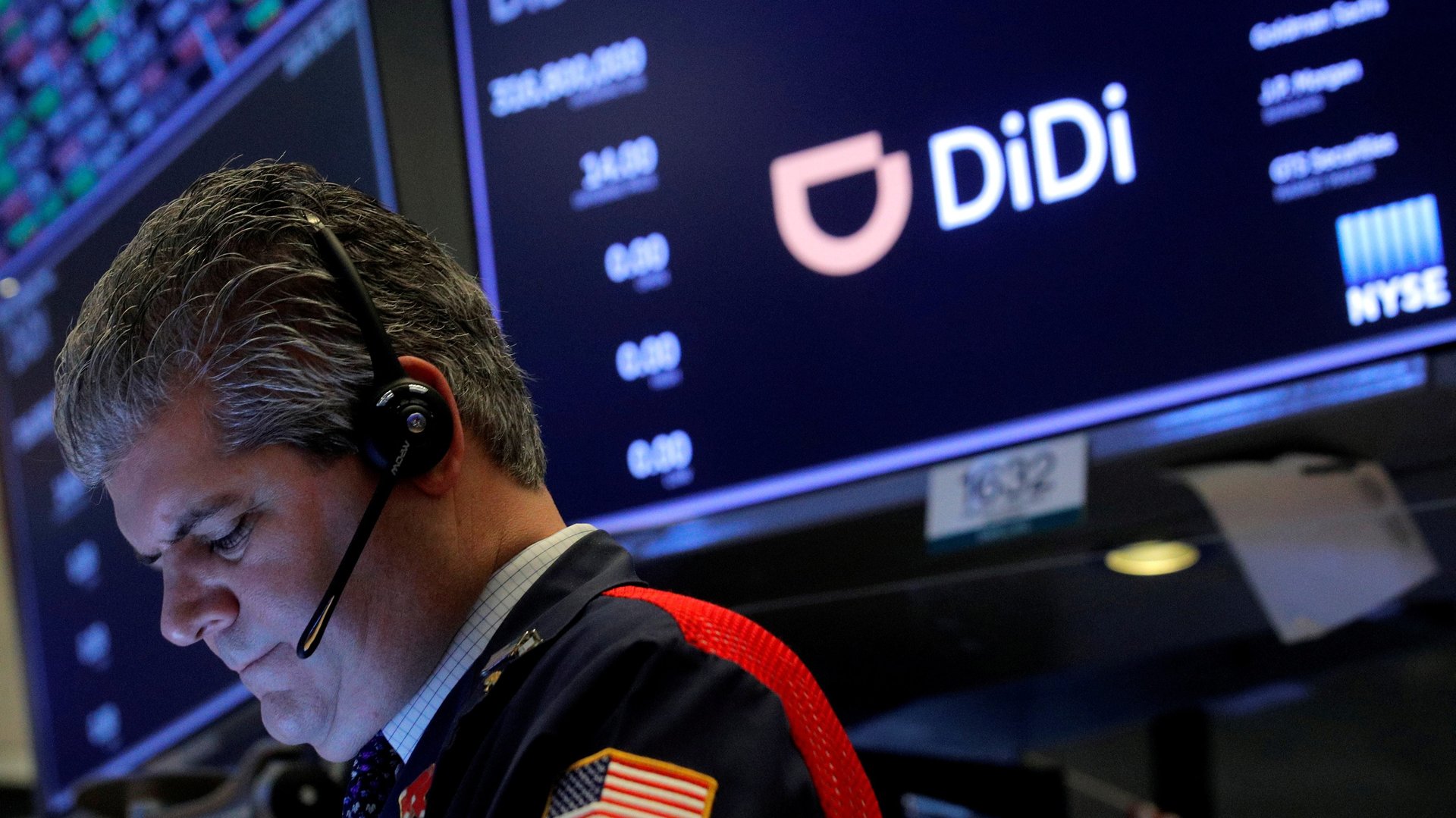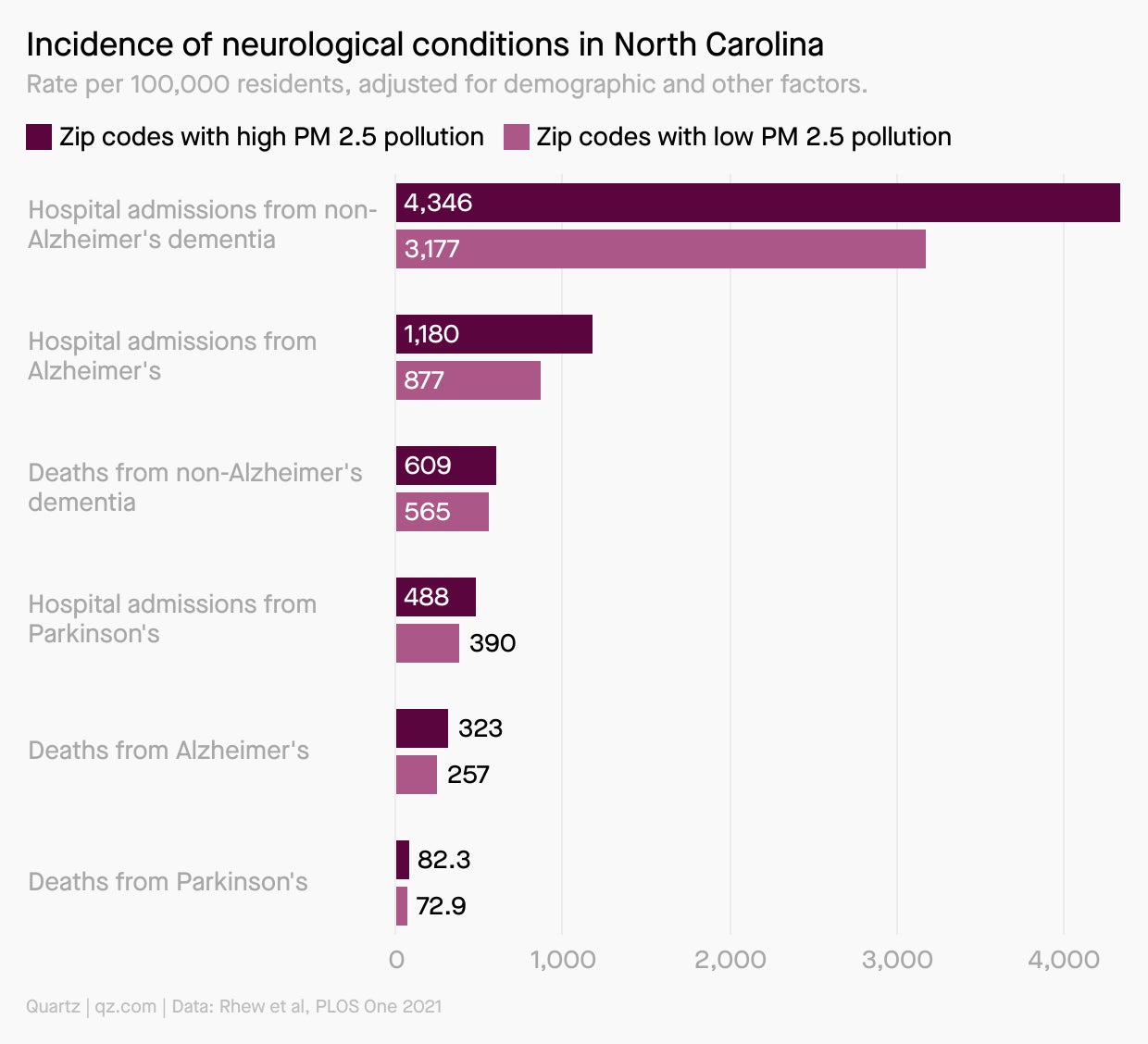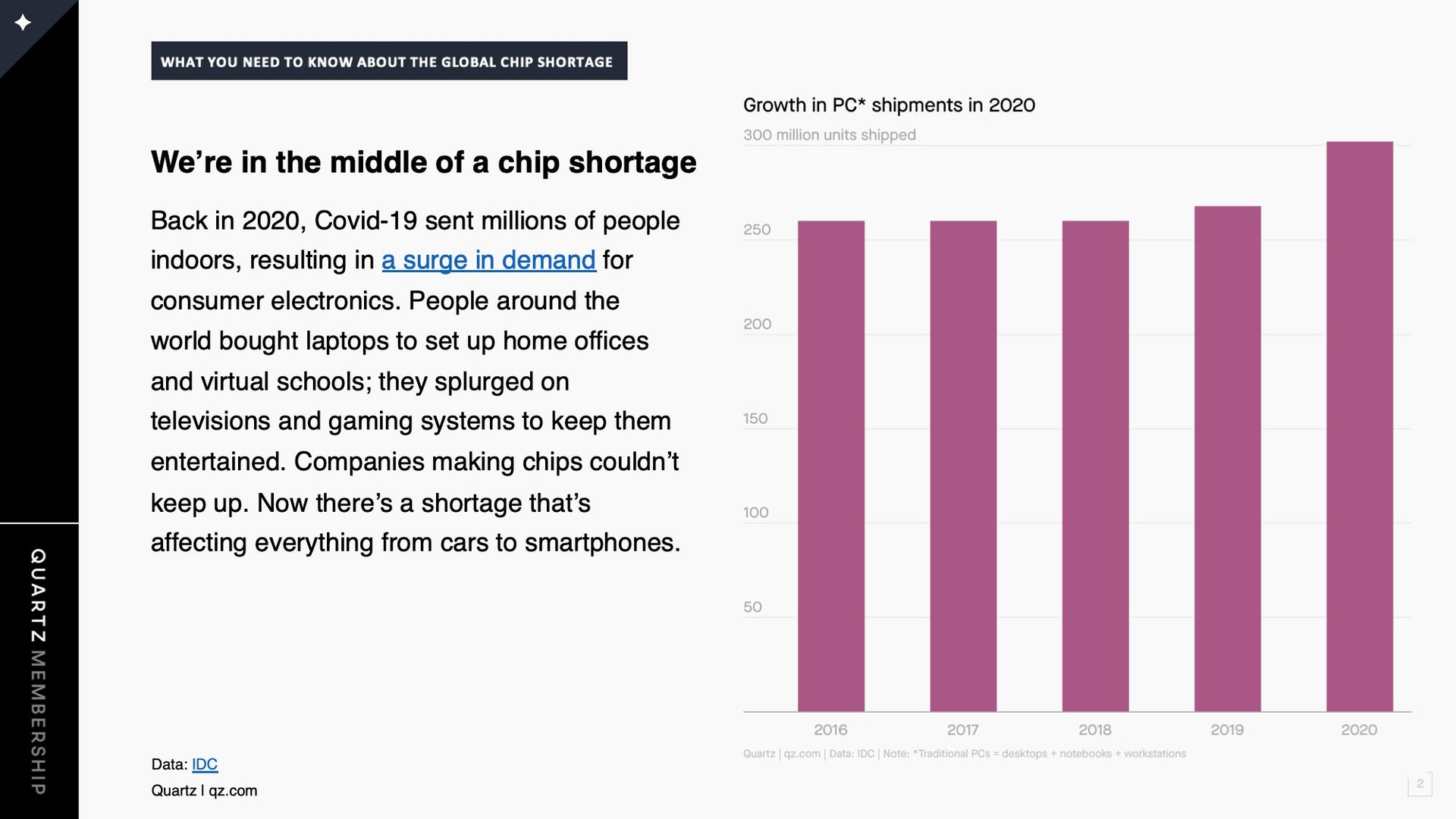EU’s vaccine acceleration, Tokyo’s Covid surge, ocean’s false bottom
Good morning, Quartz readers!


Good morning, Quartz readers!
Was this newsletter forwarded to you? Sign up here. Forward to that friend you have who’s most likely to get hooked on livestream shopping.
Here’s what you need to know
The EU is now vaccinating faster than the US. After an initial lag, member states are now vaccinating their people at faster rates than most developed countries. Meanwhile, US president Joe Biden is calling on states to give people $100 for getting their shots.
Tokyo is having a Covid surge. The Olympic host city is recording its highest number of cases—more than 10,000 on Thursday—since the start of the pandemic. Officials are expected to expand restrictions today.
Didi might go private again. After drawing the scrutiny of Chinese regulatory authorities immediately following its IPO, the ride-hailing app is considering going private to compensate investors. Didi has denied the report.
Robinhood started trading. After a disappointing open, the retail trading app’s stock prices continued to tumble.
China stepped up diplomatic efforts in Afghanistan… Chinese officials gave a warm welcome to Taliban leaders, and called the quick withdrawal of US troops from the country a “failure” of policy.
…and sent a new ambassador to DC. Qin Gang arrived in the US Wednesday with a goal of repairing the extremely fraught relationship between the two world superpowers.
Hong Kong is investigating booing at a mall. Police said they’re looking into complaints that people watching an Olympics broadcast of Hong Kong’s gold medal win in fencing insulted China’s anthem, which became a crime last year.
What to watch for
The national moratorium on evictions in the US is up this Saturday. It was first put in place as a public health measure, so that people who lost their income would not be left without housing, or forced to crowd together in relatives’ homes or homeless shelters, where Covid-19 would be more likely to spread. Now, after four extensions, the protections are finally being lifted.
This is bad news for the 3.6 million American renters who are likely to face an eviction within two months, according to the latest US Census Bureau data. Collectively, Americans may owe more than $50 billion in back rent, according to some estimates.
The best way to prevent an eviction crisis is by giving people rental assistance. Federal money has been allocated for this, but so far, only 6.5% of federal rental assistance dollars have been distributed.
Charting the link between dementia and air pollution
Scientists are growing more confident that air pollution—especially from particulate matter less than 2.5 microns wide, known as PM 2.5—significantly raises the risk of Alzheimer’s disease and other forms of dementia, according to a series of separate studies published in July.

Air pollution is far from the most decisive factor for dementia risk. About 70% of risk stems from an individual’s genetic predisposition to the disease, and the remainder comes down to age, lifestyle, and environmental factors. Still, all else being equal, PM 2.5 pollution clearly substantially elevates risk, and it should be a concern for countries where it remains elevated—Bangladesh, Pakistan, and India rank highest in the world.
Chips move everything around me
Chips are in a ton of products consumers love, but the current global shortage is putting a damper on spending. The pandemic caused a surge in demand for electronics, which left chip manufacturers exposed to the inefficiencies in the global supply chain. Now governments and countries are working together to boost manufacturing capacity and meet the needs of a rapidly digitizing world.

Read more in our latest presentation on what’s causing the global chip shortage.
You asked about breakthrough infections
What is a breakthrough infection and what does the delta variant have to do with it?
You’ve been vaccinated, you’re following mask guidelines—how much should you worry about getting a so-called “breakthrough” infection of Covid-19? The reality is that there were always going to be Covid infections among the vaccinated, though they only rarely lead to hospitalization or death, if they’re symptomatic at all. The problem with the delta variant is that, while it’s not more severe, it is much more contagious—and this virus was plenty contagious to begin with.
So that means more breakthrough infections that spread more delta variant cases, which in turn lead to more hospitalizations and deaths among the unvaccinated, more virus replication, and therefore more dangerous variants. That’s why calls for vaccination (our best defense) and masking (still a pretty good one) are only getting louder.
Handpicked Quartz
(👇As always, the first story in this list is paywall-free. Want all of them to be? Try a Quartz membership free for a week.)
Surprising discoveries
What’s the longest running animated kids show in the US? The 25-year-old PBS program, which may not have been your first guess, is calling it quits.
Scooter loot. A jewel thief in Paris chose an unconventional (and unsuccessful) getaway vehicle.
Oceans have a “false bottom.” Sonar technology helped scientists understand that what they thought was an ocean floor is actually a “twilight zone” teeming with life.
US governments seized a stolen artifact from Hobby Lobby. The arts and crafts chain had bought a cuneiform tablet at auction to display at a Bible museum—a cuneiform tablet that had been stolen from Iraq, that is.
Fencers weren’t fencing enough. The Olympians were spending too much time standing around, but a new rule forces them to fight.
Our best wishes for a productive day. Please send any news, comments, action-oriented rules, and recovered artifacts to [email protected]. Get the most out of Quartz by downloading our iOS app and becoming a member. Today’s Daily Brief was brought to you by Tim McDonnell, Camille Squires, and Susan Howson.